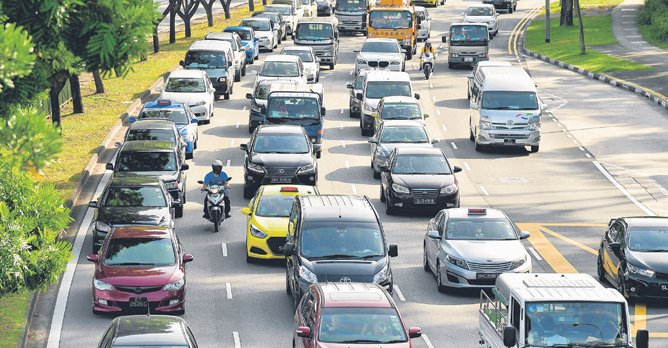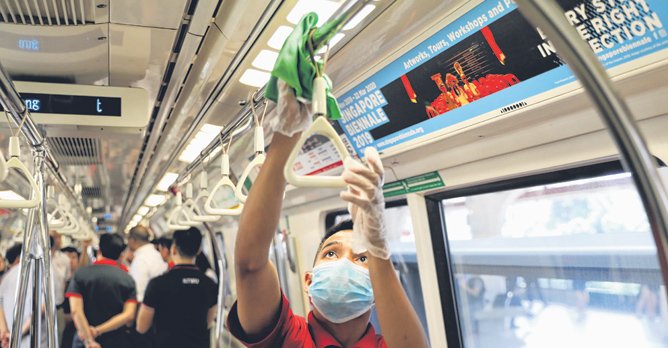COE and road tax will continue to apply to private cars
06 May 2020|361 views
Private car owners will have to continue paying for Certificates of Entitlement (COEs) and their road tax plus vehicle licensing fees during the circuit breaker period, said Transport Minister Khaw Boon Wan on 5 May 2020.
The reason is they can still drive on the road for essential work or personal activities like buying groceries, he pointed out.

Associate Professor Theseira had raised the issue too when he asked whether such relief could be given to mitigate motor vehicle depreciation costs in view of the impact of COVID-19 measures on motor vehicle usage. But, Mr. Khaw noted, the Land Transport Authority (LTA) has already made adjustments to land transport services and charges.
He pointed to the LTA extending the inspection deadline for private car owners who were originally scheduled to have their cars inspected during the circuit breaker period. It also extended the deadline for vocational drivers to submit their medical reports when renewing their vocational licenses.
"In both cases, the motorists can continue using their vehicles as long as they have valid insurance coverage and road tax," he said. In a separate written parliamentary reply, Mr. Khaw said that post-pandemic, the current financing model for public transport would have to be updated should the impact of COVID-19 be "drastic".

The Minister was replying to Prof Theseira, an economist with the Singapore University of Social Sciences, who had asked how social distancing measures had affected demand for public transport services, among other things.
Mr. Khaw also said public transport companies are racking up additional costs as they clean and protect their vehicles and drivers, and house Malaysian bus drivers.
These Malaysian drivers are affected by their country's Movement Control Order that requires them to be quarantined for 14 days when they cross the border into Johor. "These costs would eventually have to be borne by operators and taxpayers, as they are not adequately covered by current fares. Our transport operators are therefore under significant financial stress, especially as their rail operations were already making losses prior to COVID-19," he added.
Current ridership has plummeted by 75% for buses and 84% for trains compared with pre-COVID-19 levels. At the same time, fare revenues have plunged by about 80%.
For now, the impact on the operators is "partly cushioned" by relief measures such as the Job Support Scheme, property tax rebates, waiver of the foreign worker levy and temporary suspension of Electronic Road Pricing, he noted.
Operating costs could have declined further if public transport supply was reduced to match the dwindling demand, but operators have largely preserved service capacity to ensure commuters could maintain social distancing, Mr. Khaw said. "Post-pandemic, we will see how public transport evolves," he added.
Private car owners will have to continue paying for Certificates of Entitlement (COEs) and their road tax plus vehicle licensing fees during the circuit breaker period, said Transport Minister Khaw Boon Wan on 5 May 2020.
The reason is they can still drive on the road for essential work or personal activities like buying groceries, he pointed out.

Associate Professor Theseira had raised the issue too when he asked whether such relief could be given to mitigate motor vehicle depreciation costs in view of the impact of COVID-19 measures on motor vehicle usage. But, Mr. Khaw noted, the Land Transport Authority (LTA) has already made adjustments to land transport services and charges.
He pointed to the LTA extending the inspection deadline for private car owners who were originally scheduled to have their cars inspected during the circuit breaker period. It also extended the deadline for vocational drivers to submit their medical reports when renewing their vocational licenses.
"In both cases, the motorists can continue using their vehicles as long as they have valid insurance coverage and road tax," he said. In a separate written parliamentary reply, Mr. Khaw said that post-pandemic, the current financing model for public transport would have to be updated should the impact of COVID-19 be "drastic".

The Minister was replying to Prof Theseira, an economist with the Singapore University of Social Sciences, who had asked how social distancing measures had affected demand for public transport services, among other things.
Mr. Khaw also said public transport companies are racking up additional costs as they clean and protect their vehicles and drivers, and house Malaysian bus drivers.
These Malaysian drivers are affected by their country's Movement Control Order that requires them to be quarantined for 14 days when they cross the border into Johor. "These costs would eventually have to be borne by operators and taxpayers, as they are not adequately covered by current fares. Our transport operators are therefore under significant financial stress, especially as their rail operations were already making losses prior to COVID-19," he added.
Current ridership has plummeted by 75% for buses and 84% for trains compared with pre-COVID-19 levels. At the same time, fare revenues have plunged by about 80%.
For now, the impact on the operators is "partly cushioned" by relief measures such as the Job Support Scheme, property tax rebates, waiver of the foreign worker levy and temporary suspension of Electronic Road Pricing, he noted.
Operating costs could have declined further if public transport supply was reduced to match the dwindling demand, but operators have largely preserved service capacity to ensure commuters could maintain social distancing, Mr. Khaw said. "Post-pandemic, we will see how public transport evolves," he added.
Latest COE Prices
October 2025 | 2nd BIDDING
NEXT TENDER: 05 Nov 2025
CAT A$122,000
CAT B$131,889
CAT C$76,801
CAT E$136,000
View Full Results Thank You For Your Subscription.





















